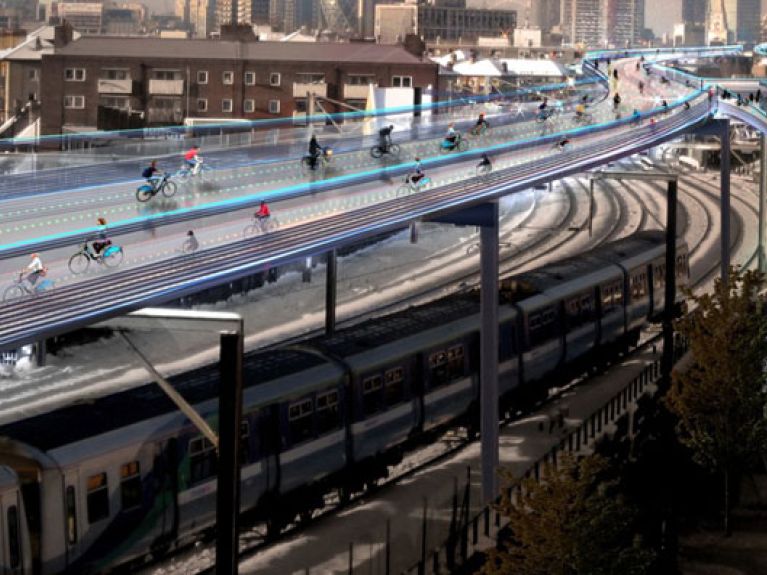The cycle superhighways are coming
The boom in e-bikes is driving the trend towards cycle highways.

Cycle superhighways are coming The university city of Göttingen has already opened a section between the campus and the railway station. The favourite for the first route in the Frankfurt Rhine-Neckar metropolitan region is between Frankfurt and Darmstadt. North Rhine-Westphalia is planning the biggest scheme yet with a 100-kilometre route in the Ruhr area from Duisburg via Mülheim, Essen, Gelsenkirchen, Bochum, Dortmund and Unna to Hamm. The advantage is that there is a broad consensus on the introduction of cycle superhighways, because they are equally good for the climate, your health and the environment and promise greater mobility in urban areas. However, the projects also cost money, and you have to do more than develop and re-signpost the existing tracks. As far as possible the new cycle highways should be kept separate from car traffic and pedestrian walkways and offer connections to city centres and public transport. They should be three to four metres wide to make it possible to overtake even when there is oncoming traffic. In addition, they should be free of obstructions, i.e. have no intersections or traffic lights, to allow a high average speed. The road should also have a good-quality surface and be well lit.
Futuristic bike highway from Norman Foster
The boom in e-bikes is one driver of this development. More than 1.6 million of them are already on the road in Germany. And sales are growing rapidly, because, in addition to the “silver agers”, more and more younger people are recognising the advantages and switching, especially in metropolitan regions. According to a recent study, 23% of people in regular employment can imagine riding an e-bike to work instead of taking the car.
The pioneer this development was cycle-friendly Holland. There, the first cycle highways were already tested in the 1980s. The most audacious idea for bike highways has been developed for London by the British star architect Norman Foster: a futuristic, 220-kilometre bike route (SkyCycle) connecting London's boroughs elevated above railway lines. However, the first cost estimates are also elevated: £220 million (€270 million) for a stretch just over six kilometres long.

